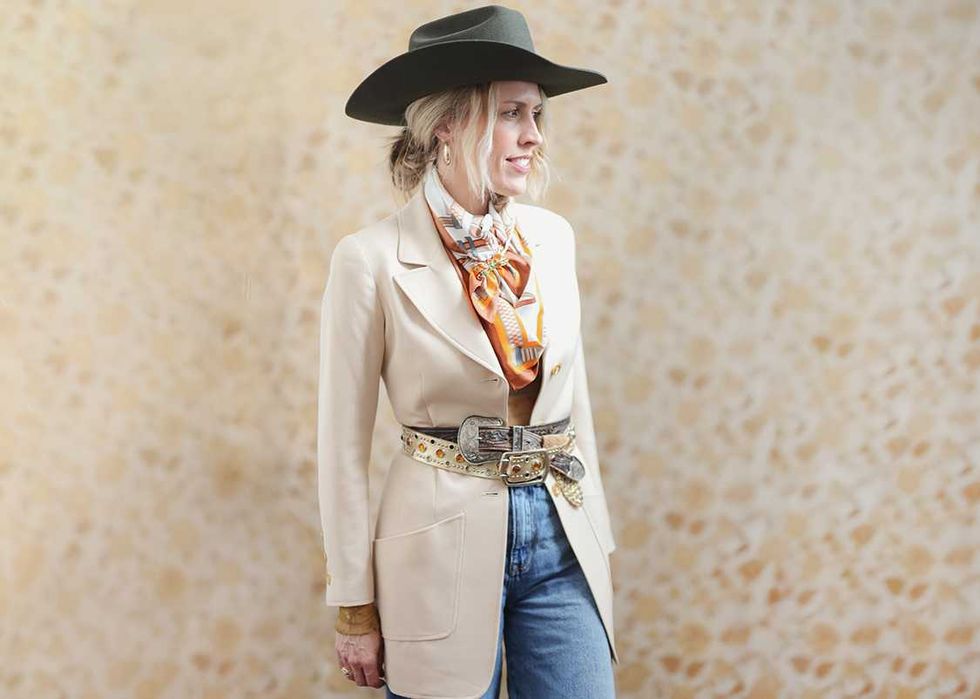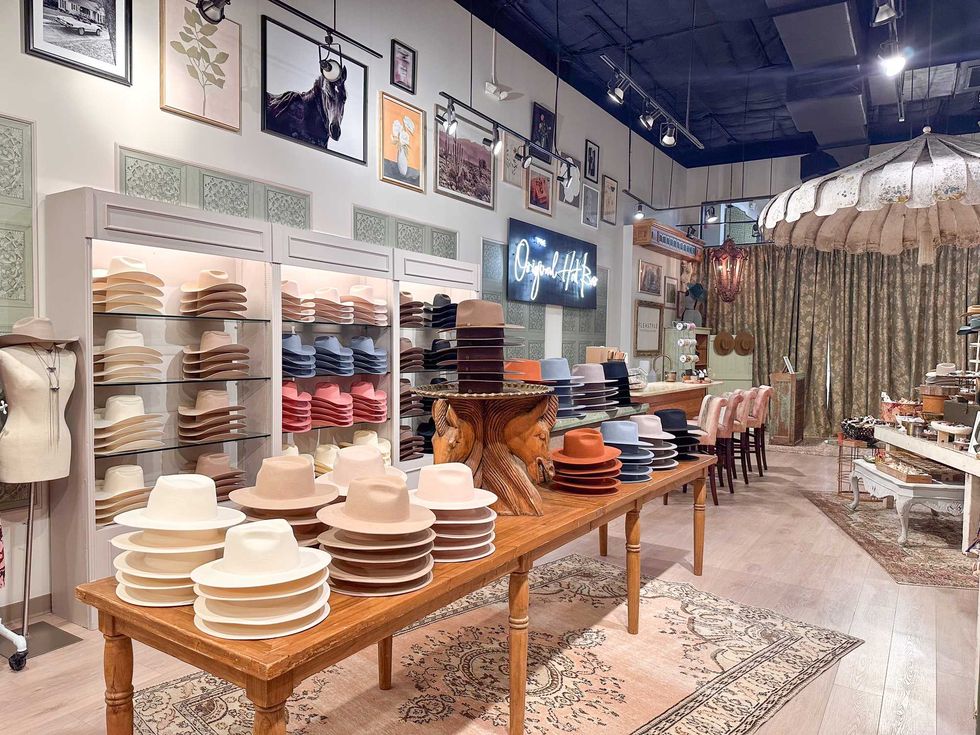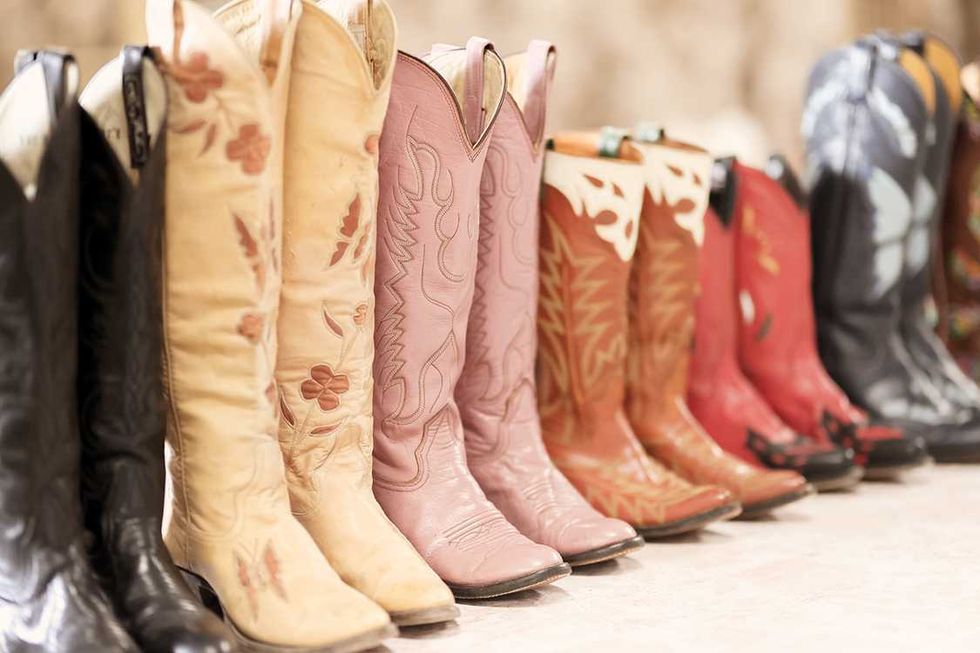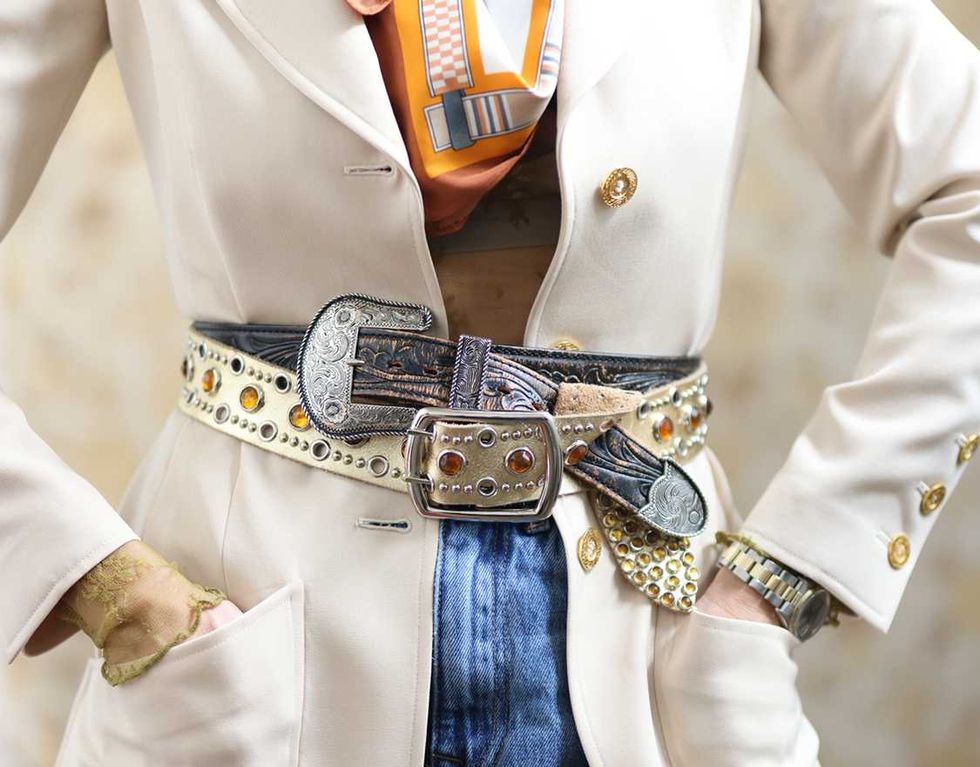Fashion Drama
Big change at Balenciaga: Does Alexander Wang have the talent to upholdGhesquière's legacy?
 Alexander WangPhoto by Rabbani And Solimene Photography/WireImage for H&M
Alexander WangPhoto by Rabbani And Solimene Photography/WireImage for H&M A look from the Balenciaga spring 2013 collection: Nicolas Ghesquière had anunparalleled understanding of the modern woman that will be copied for decades.Photo by Victor VIRGILE/Gamma-Rapho via Getty Images
A look from the Balenciaga spring 2013 collection: Nicolas Ghesquière had anunparalleled understanding of the modern woman that will be copied for decades.Photo by Victor VIRGILE/Gamma-Rapho via Getty Images Alexander Wang's fall 2012 collection: His designs have edgy, somewhat tomboyishbut simultaneously refined look.Photo by Peter Michael Dills
Alexander Wang's fall 2012 collection: His designs have edgy, somewhat tomboyishbut simultaneously refined look.Photo by Peter Michael Dills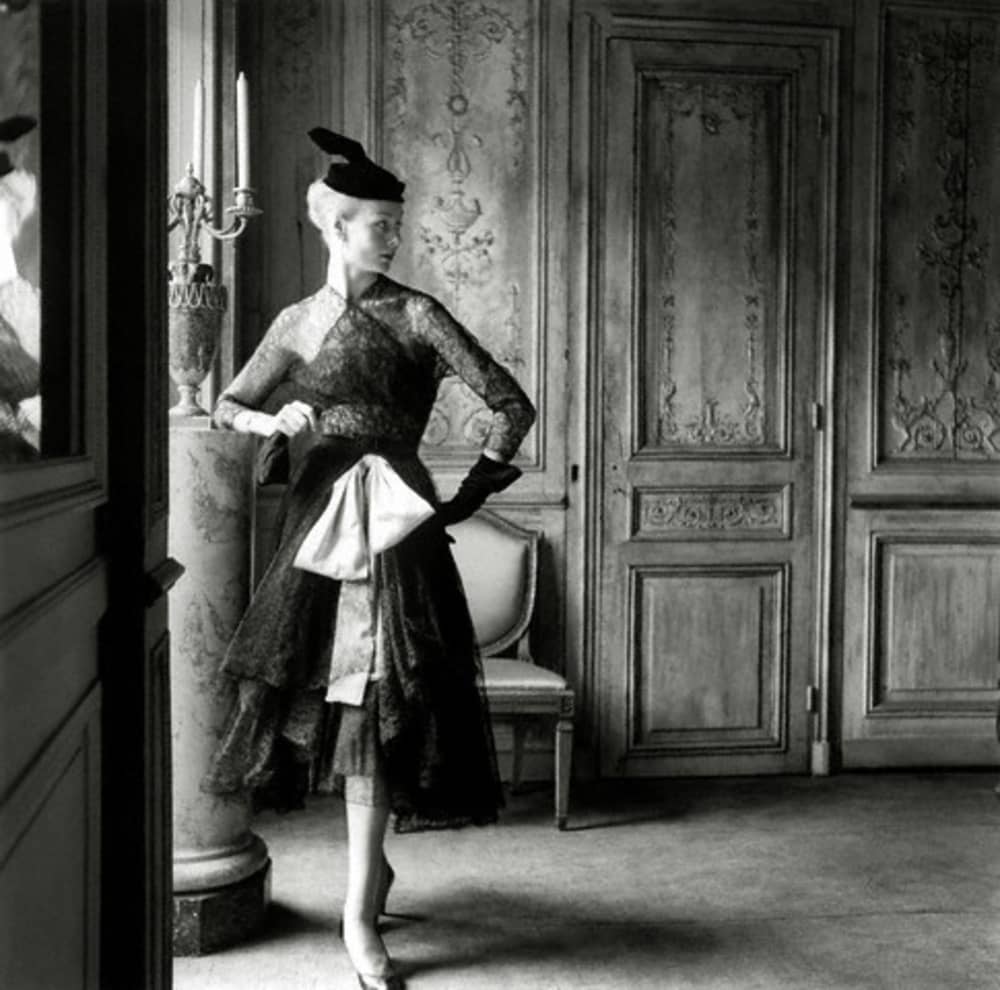 The classic looks of Baleciaga
The classic looks of Baleciaga Alexander Wang Rocco handbagCourtesy of Net-A-Porter
Alexander Wang Rocco handbagCourtesy of Net-A-Porter
It’s been quite a year for some of Europe’s biggest fashion houses: Jil Sander has returned to her eponymous label, replacing Raf Simons who took the helm at Dior after John Galiano's breakdown, and Hedi Slimane, former creative director of Dior Homme, replaced Stefano Pilati at Yves Saint Laurent.
“Musical chairs” is the way most of the fashion press has described this season of change, but after a few months of chaos, it seemed like the music was coming to a halt.
And then out of nowhere, French luxury goods conglomerate PPR announced that Nicolas Ghesquière would be ending his 15-year tenure as creative director of Balenciaga. Everyone was shocked – there were no rumor reports leading up to the decision, and Ghesquière’s recent collections were some of the most critically-acclaimed to date. Since PPR’s acquisition of the Spanish house in 2001, Balenciaga had been on a consistent growth trajectory, and showed no signs of slowing down.
Wang’s collections are cool, and steadily improving, but I don’t think he’s mature enough to pick up where Ghesquière left off.
An official press release from PPR provided no additional answers, vaguely stating, “The Balenciaga fashion house and Nicolas Ghesquière have announced their joint decision to end their working relationship as of 30 November 2012.”
Within a week, Alexander Wang’s name was floating around as a potential replacement for Ghesquière. I laughed this off from day one. There was no way that PPR would appoint Wang – who has built an extremely successful brand yet has a somewhat limited design background– to uphold Cristobal Balenciaga’s legacy of architecturally-inspired couture.
Branding is half the battle
Balenciaga needed someone with a design pedigree as impressive as Ghesquière’s, who before taking over for Balenciaga at the young age of 25 worked under Jean-Paul Gaultier and agnès b. Wang, on the other hand, dropped out of Parsons to create his eponymous label a short five years ago.
But four days ago, Women’s Wear Daily reported that Alexander Wang would be Balenciaga’s next creative director. To the demise of many naysayers, including yours truly, PPR confirmed his appointment Monday.
Wang is the quintessential “hot” designer. His clothes are (somewhat) affordable, and his overseas manufacturing connections have ensured that he makes high enough margins on every item he sells to build a pretty slick brand.
Wang’s infamous Rocco bag, an unstructured, everyday cross-body with studs on the bottom, seems to be eerily similar in concept to Balenciaga’s signature line of accessories.
The SoHo flagship is a beautiful temple to the designer’s club-chic minimalism, and “Wang girls” pile in to buy studded handbags, ultra-soft oversized tees and leather shorts. Every New York fashion week, Wang casts the perfect models for his elaborate runway shows and throws the best after party in town, filled with a "who’s who" of 20-year-old celebrities.
Branding is half the battle in fashion, and Wang has done an excellent job of building his. But I would argue that much of it is predicated on the work of designers like Ghesquière.
Wang’s infamous Rocco bag, an unstructured, everyday cross-body with studs on the bottom, seems to be eerily similar in concept to Balenciaga’s signature line of accessories. The edgy, somewhat tomboyish but simultaneously refined look that Wang is known for reminds me of what Ghesquière has been doing for years.
The only difference is that Ghesquière incorporated a level of craftsmanship that Wang has yet to demonstrate that he is capable of. Ghesquière designed neoprene dresses, metallic bodysuits and articulated-sleeve motorcycle jackets, inspired by avant-garde artworks and an unparalleled understanding of the modern woman, that will be copied for decades. Wang’s collections are cool, and steadily improving, but I don’t think he’s mature enough to pick up where Ghesquière left off.
It's just clothes
Earlier today, I found myself blasting a friend on Facebook who stated that Balenciaga needed something “fresh and young,” and that Wang could provide it. In retrospect, it was a ridiculous move on my part – it's just clothes, after all.
It was this encounter that made me understand the importance of fashion; its power to inject beauty into an individual’s everyday life and act as an agent of transformation.
But I have somewhat of a personal stake in Ghesquière’s work. It was seeing a colleague of mine at a luxury boutique in Boston model a look from his spring/summer 2012 collection that completely revitalized my perspective on fashion. She was literally transformed by a pair of trousers and a jacket that didn’t even look that spectacular on a hanger.
It was this encounter that made me understand the importance of fashion; its power to inject beauty into an individual’s everyday life and act as an agent of transformation. Ghesquière was preserving the legacy of couture while incorporating a youthful sensibility, something I didn’t previously think possible.
Maybe Alexander Wang has the potential to propel Balenciaga into the next generation. Maybe he’s been bound by his commercially successfully contemporary brand, and has a masterful understanding of architectural shapes and the female body hiding behind the guise of layers of oversized black knits.
I’m skeptical, but I’ll refrain from any further judgment until his first collection.
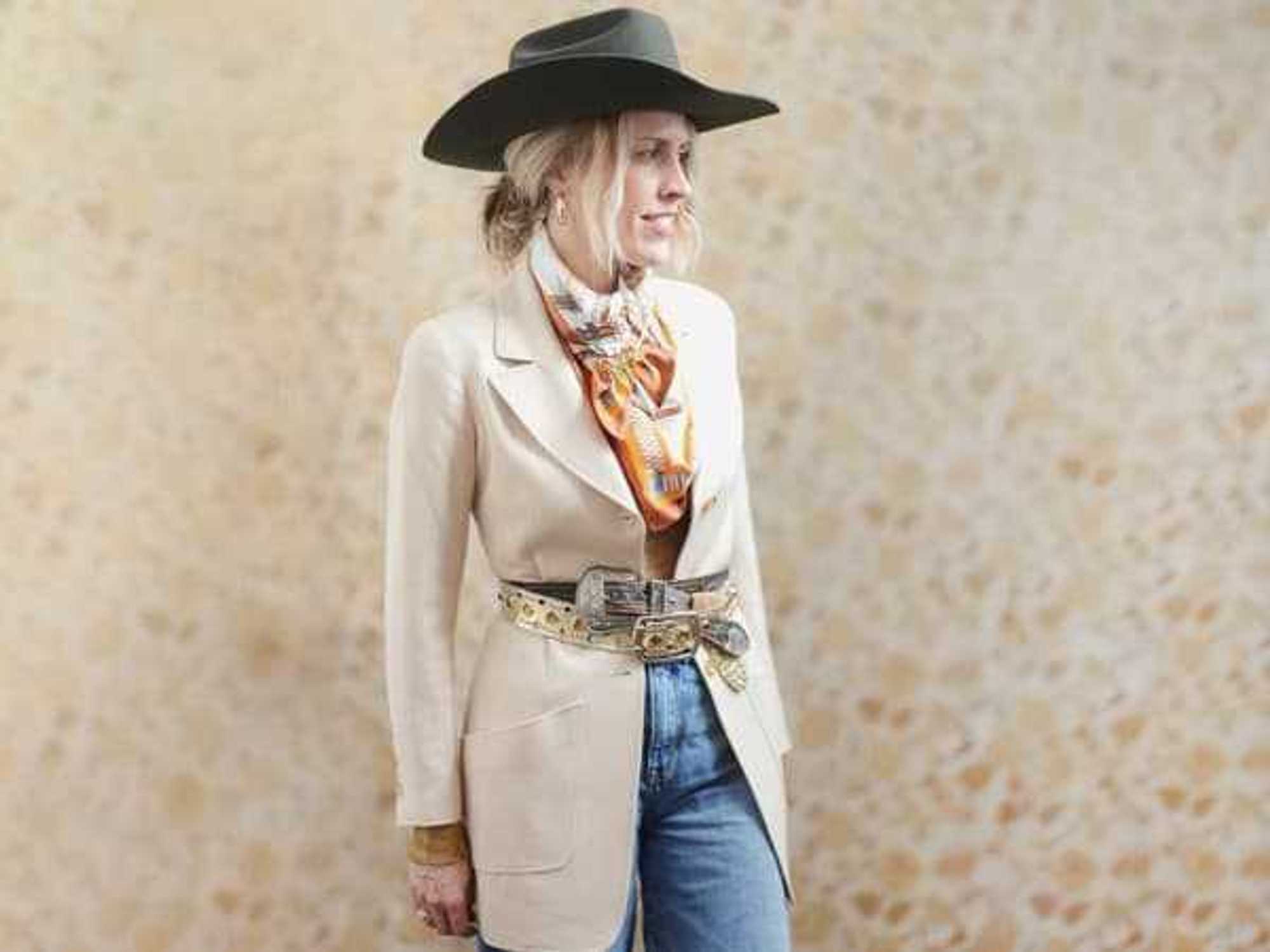
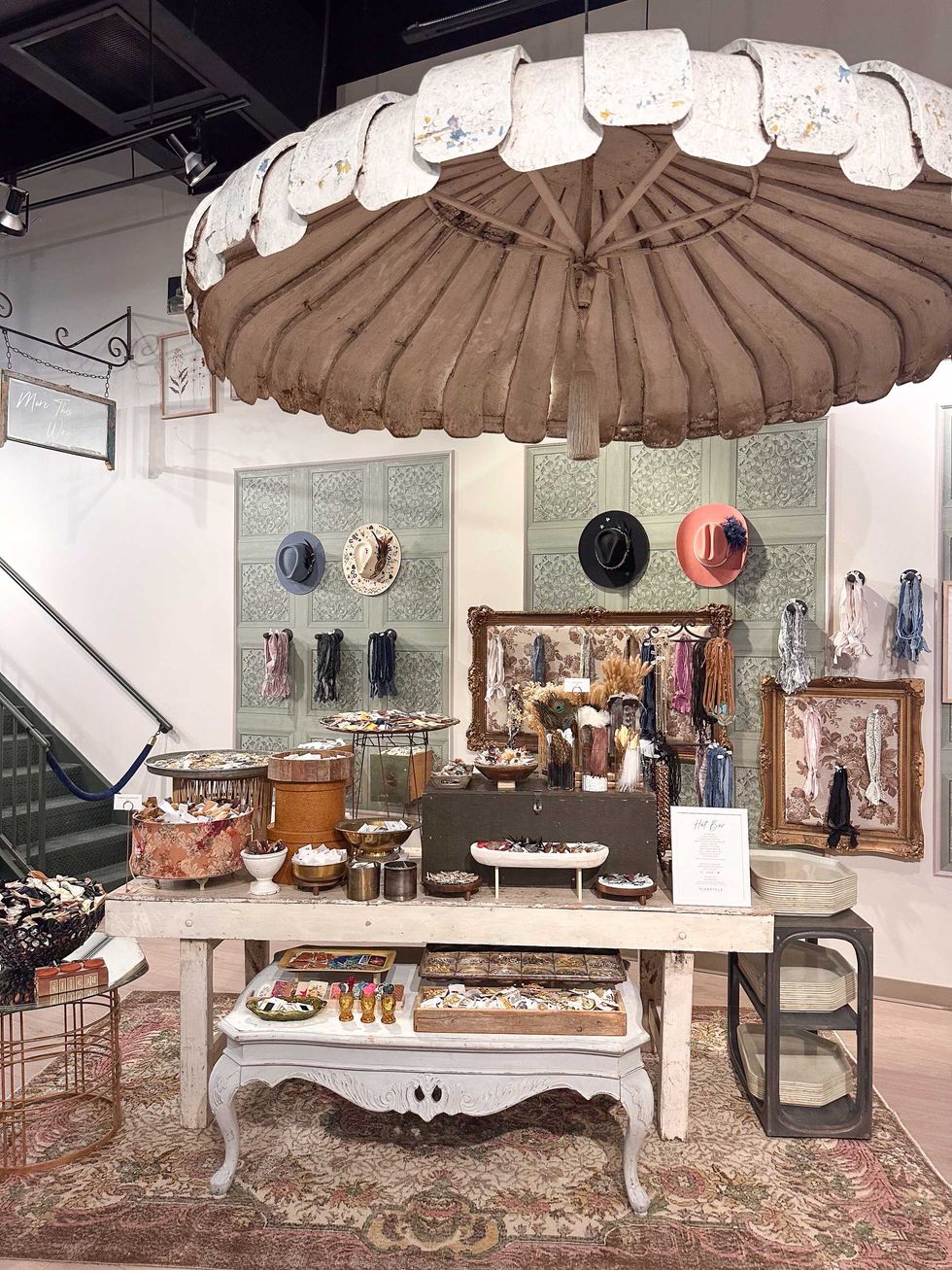 Flea Style’s new River Oaks storefront opens March 7, just in time for rodeo season.Photo courtesy of Flea Style
Flea Style’s new River Oaks storefront opens March 7, just in time for rodeo season.Photo courtesy of Flea Style 